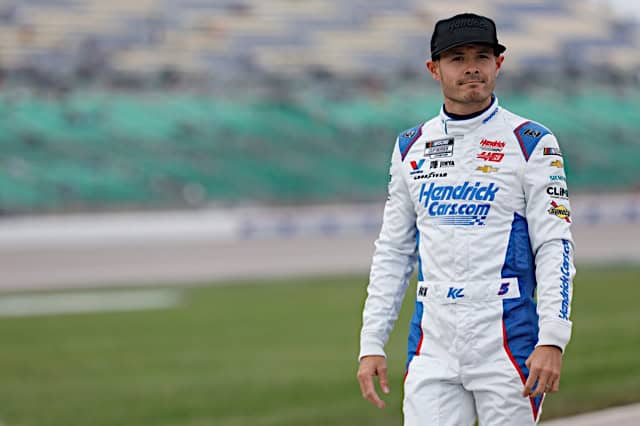They call it the greatest day in motorsports, and that’s not an exaggeration. Formula 1’s Monaco Grand Prix and the NTT IndyCar Series’ Indianapolis 500 are their respective series’ most prestigious races, and the Coca-Cola 600 which wraps up the night is one of the NASCAR Cup Series’ most coveted trophies as well. NASCAR also kicks off the weekend with a pair of undercard races. It’s truly a glut of racing.
This year’s slate of events left fans with a few questions on the NASCAR side.
After a Saturday (May 25) incident during the NASCAR Xfinity Series race, will NASCAR come down hard on Austin Hill after he turned Cole Custer into the wall? Why, after attempting to dry the Charlotte Motor Speedway surface for over an hour on Sunday night, did NASCAR pull the plug on the Cup race just past halfway? Also, will Kyle Larson, delayed in Indy after severe storms pushed the start back, be given a playoff waiver when he missed the 600 racing in another series?
Let’s talk about the waiver system. Before waivers were incorporated into NASCAR’s championship system, if a driver missed a race for any reason, they simply didn’t get any points. In a tight championship battle, that could have meant the difference between a title and an afterthought, so drivers would race hurt, sick or in other adverse circumstances.
There needed to be a way to allow a driver to recover from an injury or attend to a family emergency without throwing his season away. The playoff system lends itself better to this type of circumstance, though there certainly are solutions that could work in a full-season championship scenario as well.
The way waivers work is that a team can apply one if the driver can’t race for some reason. It gives a driver time to safely recover from an injury outside the racecar. It also allows for a driver who is sick or has a family emergency or a death in the family to attend to that and not be penalized for something beyond their control.
Those are all very legitimate reasons for missing a week or two.
But things got tricky.
Drivers missing multiple weeks due to racing or non-racing injuries, drivers suspended by NASCAR and, now, a driver electing to skip a race to race in another series are all scenarios that have come up. NASCAR has granted waivers for long-term injuries from NASCAR races (Kyle Busch in 2015) as well as from those incurred in outside hobbies (Chase Elliott and Alex Bowman in 2023) and…
Click Here to Read the Full Original Article at …

